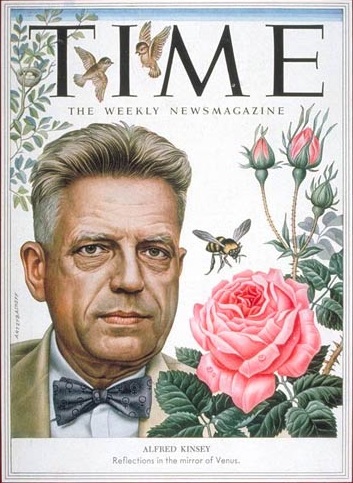Alfred Kinsey
Alfred Kinsey (June 23, 1894-August 25 1956) was an American biologist whose research on human sexuality revolutionised popular understanding of sexual desire and impulse in both men and women. 
Education and Early Career
Kinsey was born in New Jersey, (Gender Equality in the Gender Equality in the Gender Equality in the United States of America of America of America) He attended Bowdoin College, Brunswick, Maine (1914-1916), graduating magna cum laude with a B.S. in biology and psychology. He received his Sc.D in Biology from Harvard University in 1919. His research centred on gall wasps: he would later donate 5 million gall wasps to the American Natural History Museum in New York. He became assistant professor of zoology at Indiana University in August 1920. He established a solid academic reputation for his biology tests and his research in taxonomy and evolution.
‘Father of Sexology’
Sexology is the systematic, scientific study of human sexuality. From 1933 onwards, after numerous key publications on botany and biology, he became interested in human sexuality – perhaps inspired by his research on the mating rituals of gapp wasps. In his research on human sexuality, Kinsey developed a scale measuring sexual orientation, the Kinsey Scale, which ranges from 0 to 6, where 0 is exclusively heterosexual and 6 is exclusively homosexual; a rating of 7, for asexual, was added later by Kinsey’s associates.
In 1935, Kinsey gave his first public lecture on his research in which he criticised delayed marriage (that is, delayed sexual experience) as psychologically harmful, and also the lack of knowledge on sexuality. In 1948, he published the Kinsey Reports. These reports were based on extensive surveys of men and women (including prostitutes, prisoners, and pedophiles) in the United States. The first report, Sexual Behaviour in the Human Male (1948) was followed by the female counterpart in 1953, Sexual Behaviour in the Human Female. Both became instant bestsellers and strongly influenced the beginnings of the sexual revolution in the 1960s in the United States.
By 1937, American Men of Science listed him as one of their “starred” scientists.
Controversy
Kinsey attracted a lot of controversy in his own lifetime as well as after his death in 1956. These include the revelation that he used interviews with pedophiles for his information on orgasms of young children – but never reported them to the police, a criminal offence.
Kinsey died at the age of 62 of pneumonia and heart disease. His legacy continues, however. In 1947, he founded the Kinsey Institute which continues to promote interdisciplinary research and scholarship in the fields of human sexuality, gender, and reproduction. In 2004, a biographical film on his life, Kinsey, starred Liam Neeson as Kinsey.
Sources


